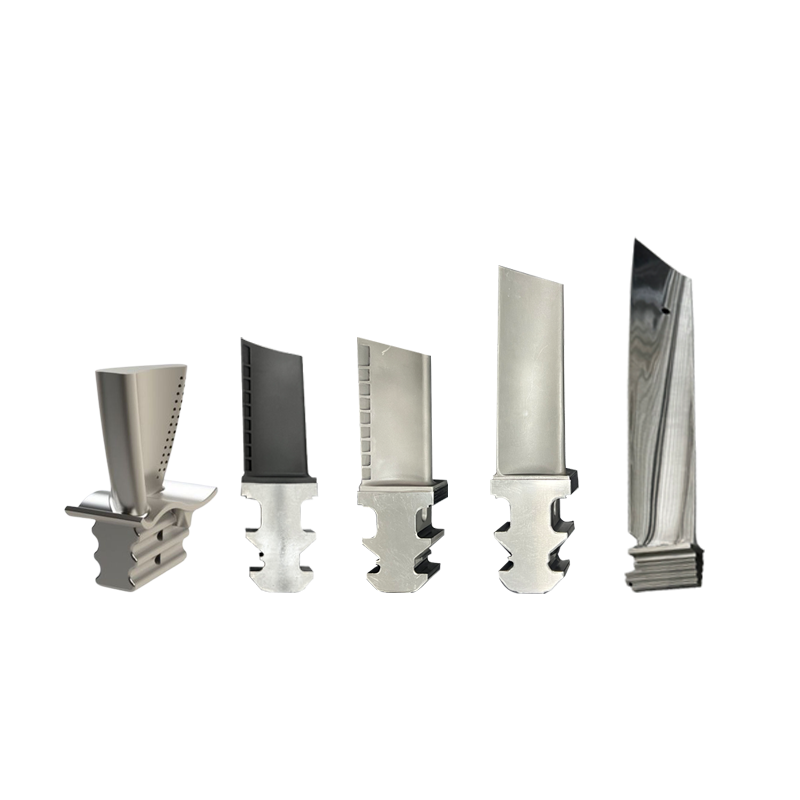
'n Turbineblad is een van die belangrike komponente van die turbine, gewoonlik geleë op die as en gebruik om die turbineblaaie te steun en verbind. Dit dra die enorme druk en belasting wat deur die sentrifugalkrag en hoogsnelheidsrotasie van die turbineblaaie veroorsaak word.
Video
Die werking van hoëtemperatuurlegering turbine blades behels aerodynamiese beginsels en termodynamiese beginsels.
Aerodynamiese beginsel:
Die aerodynamiese beginsel van turbine blades is gebaseer op die beginsel van vloeistowwe. Wanneer hoëtemperatuur en hoëdruk gas deur die turbine blades stroom, sal die lugvloed 'n drukverskil op die bladoppervlak veroorsaak, wat lei tot verskillende druk aan weerskante van die blaar. Hierdie drukverskil veroorsaak dat die blades dryf genereer, wat die turbine skoot laat roteer. Die vorm en aerodynamiese ontwerp van turbine blades sal die vloei en drukverdeling van die lugvloed op die bladoppervlak beïnvloed, wat weer die dryf en rotasie-effektiwiteit van die blades beïnvloed.
Termodynamiese beginsels:
Turbinlblade werk in hoë-temperatuur en hoë-druk lugstroom, so moet hulle goeie hitweerstand en korrosieweerstand hê. Hoë-temperatuur legeringsmateriaal word wydverspreid in turbinlblad vervaardiging gebruik weens hul uitstekende hoë-temperatuur sterkte en oksidasieweerstand. Die koelstelsel van turbinlblade speel ook 'n belangrike rol deur koelmiddels, soos koellug of vloeistowwe, in die binne of oppervlak van die blade te voer om die oppervlaktemperatuur van die blade te verlaag en die stabiliteit van die bladstruktuur en materiaalleistung te handhaaf.
In samenvatting, verander hoë-temperatuur legering turbinblaaie gas kinetiese energie in meganiese energie deur van die drukverskil te maak wat deur aerodinamiese beginsels gegenereer word, en verseker die stabiliteit en duurzaamheid van die blaaie in hoë-temperatuur en hoë-druk werksomgewings deur termodynamiese beginsels. Sy ontwerp en vervaardiging moet volledig rekening hou met aerodinamiese prestasie, materiaalkeuse, koeltegnologie en ander faktore om seker te stel dat die blaaie effektief die turbin kan dryf en vir 'n langer tydperk stabiel kan funksioneer.
Funksies
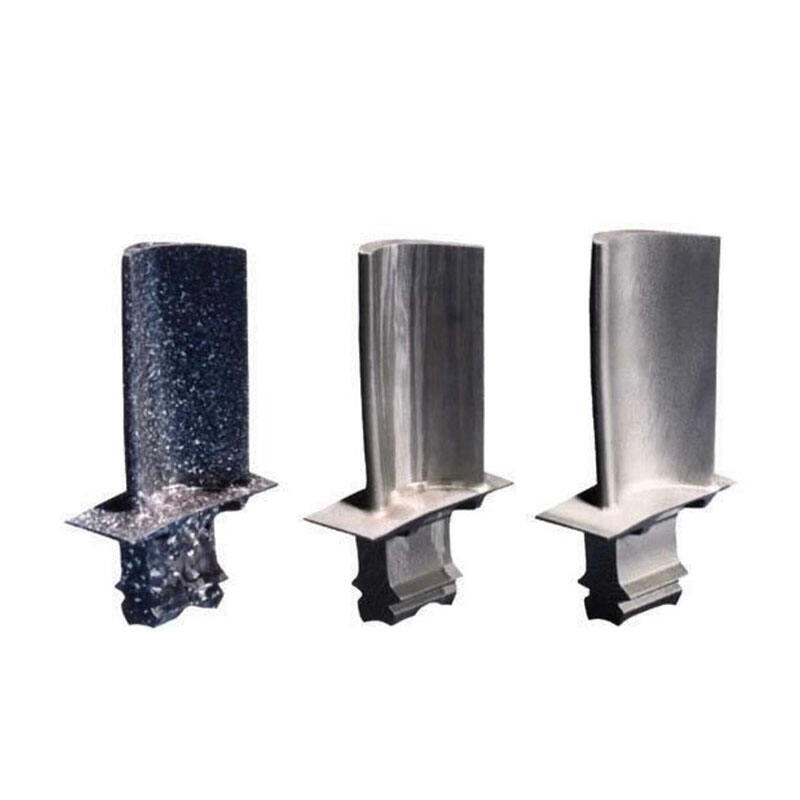
Die turbinblad is die hoofondersteunende struktuur vir vaste blaaie. Die blaaie is vasgemaak op die skoot om 'n rotasieblaaireeks te vorm. Hierdie blaaie genereer krag deur die impak van lugvloed, waardeur die turbin-skoot aangetrek word om te roteer en verwante meganiese toerusting te bedryf.
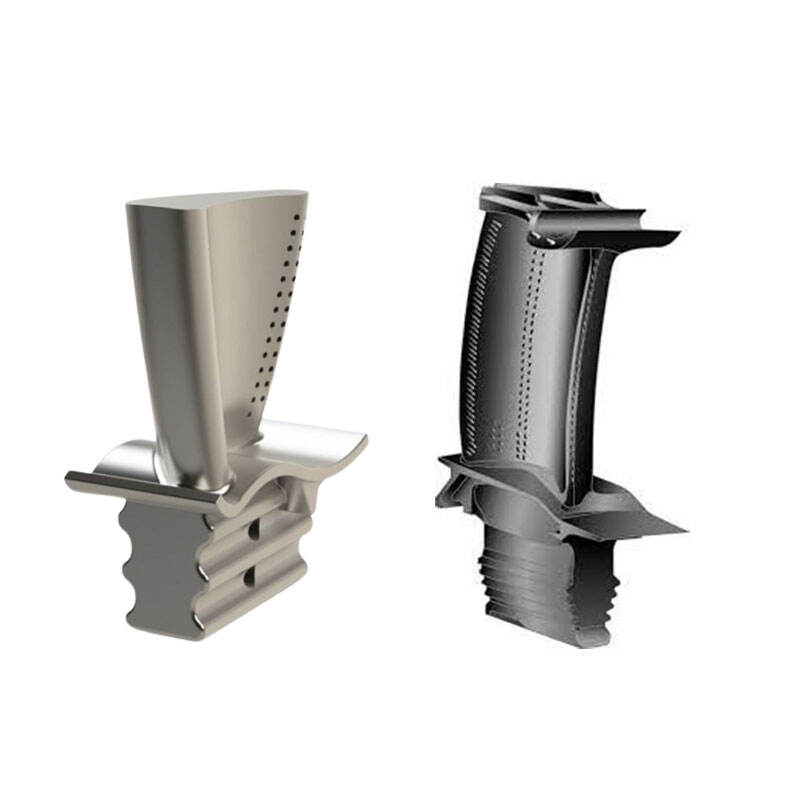
Die turbinblaar dra die sentrifugale krag en -impuls wat deur die turbinblaaie gegenereer word, verander die kinetiese energie van die lugvloed in meganiese energie en verskaf krag om die bedryf van die turbine te ondersteun. Tydens hul hoogsnelheidsrotasie, verander hulle lugvloedenergie in rotasionele kinetiese energie op die as.
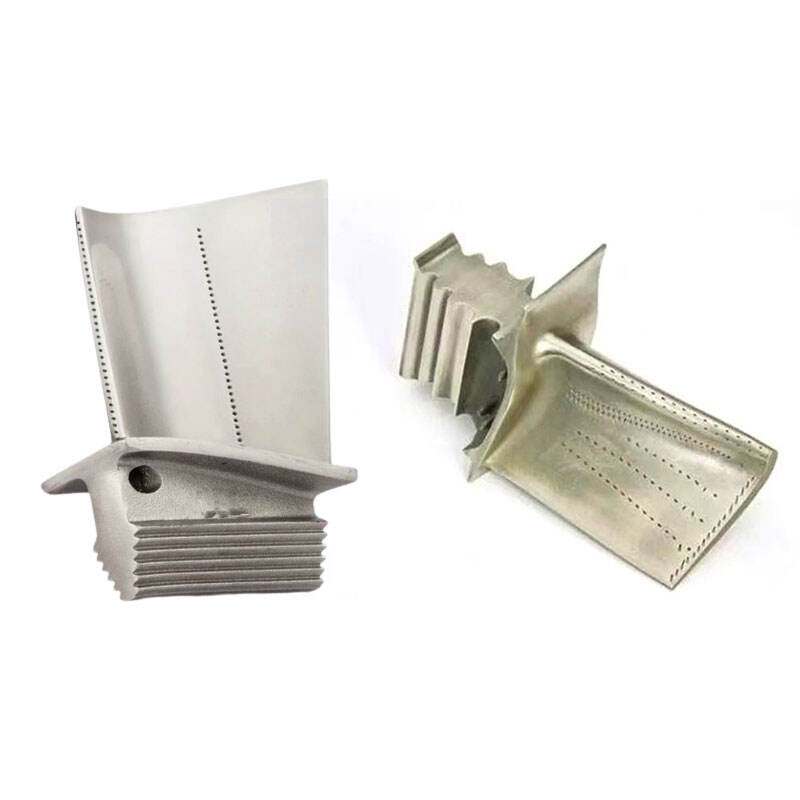
Die ontwerp en vervaardiging van die turbindis moet verseker dat dit genoeg krag en starheid het om die sentrifugale krag en inersiekrags te weerstaan wat deur hoogsnelheidsrotasie veroorsaak word. Gelyktydig moet hulle gebalanseer en gelyn wees om die stabiele bedryf van die turbine te verseker.
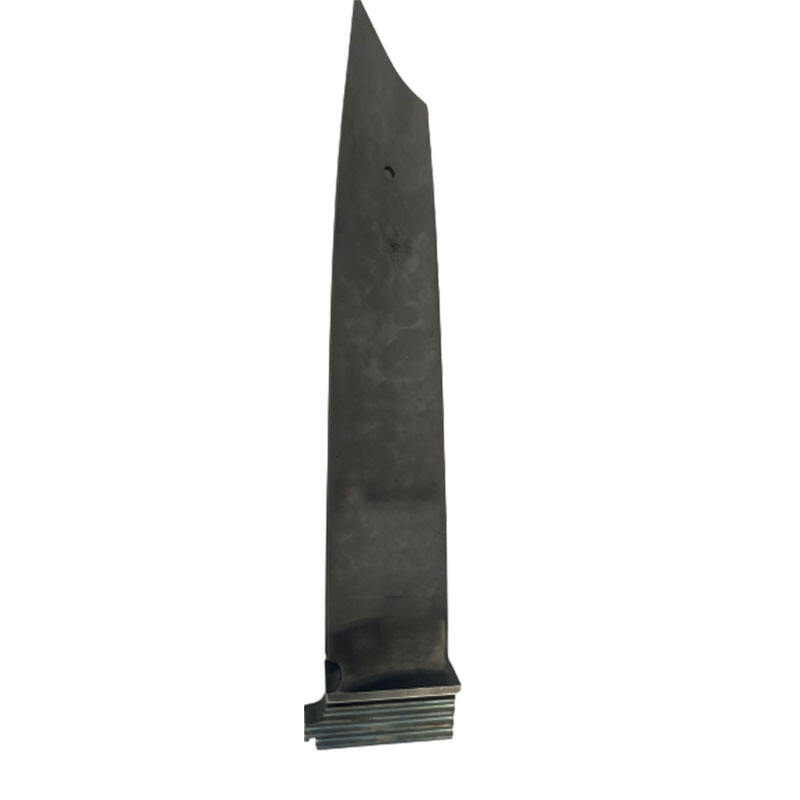
Die turbinblaar is die hoofondersteuningsstruktuur vir vaste blaaie. Die blaaie is op die dis vasgemaak om 'n rotasionele blaarreeks te vorm. Hierdie blaaie genereer krag deur die impak van lugvloed, wat die turbindis laat roteer en verwante meganiese toerusting dryf om te bedryf.
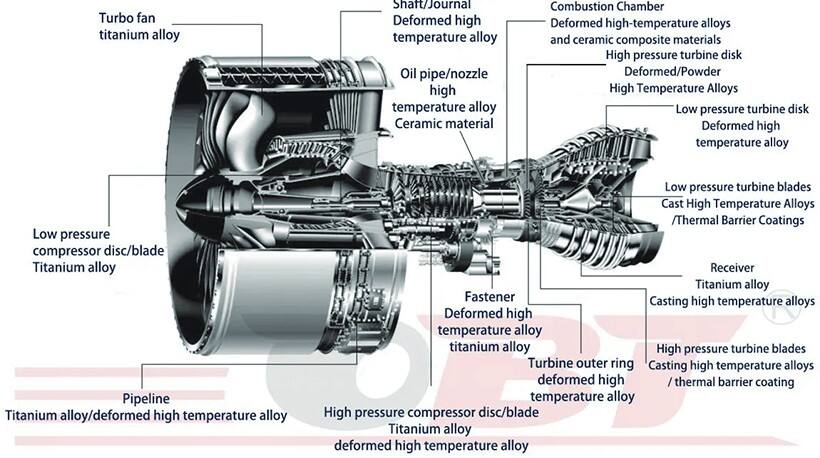
Materiaal
Inconel materiaal Hastelloy materiaal Stellite materiaal Titanium materiaal Nimonic Alloy materiaal
In die algemeen neem die turbinlblad, as een van die kernkomponente van die turbine, die belangrike funksies van verbind, ondersteun en oordra van krag op sy. Sy ontwerp en vervaardiging vereis presisiewerk en hoëkwaliteit materiaal om effektiewe, stabiele en betroubare bedryf van die turbine te verseker.
Turbinlblade, as 'n sleutelkomponent van turbines, word wydverspreid in baie velde soos lughawe, energie, nywerheid, vervoer en energie-onttrekking gebruik, wat krag ondersteuning en energieomskakeling vir verskeie tipes meganiese toerusting verskaf.
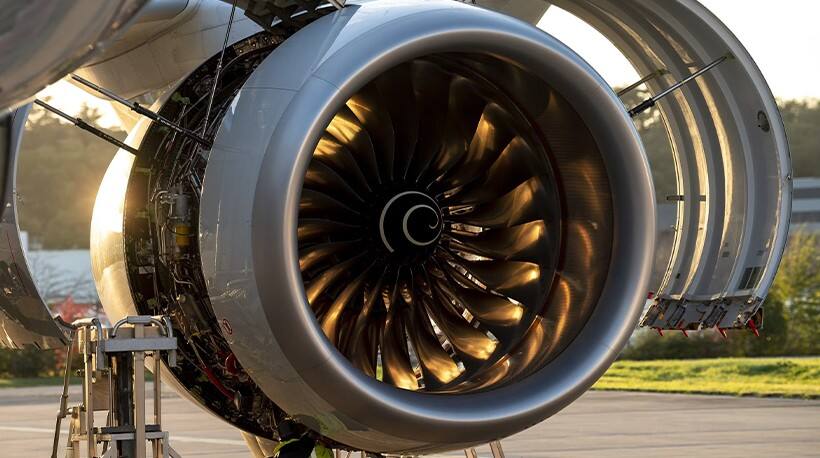
Lugvaartbedeling: Turbinescywe word wydverspreid in lughawesmotors, insluitend straalmotors, turbofan-motors, ens., gebruik. Hulle dra die turbinlblade, wat roteer om die kompresor, turbine en ander verwante komponente aan te dryf om krag te verskaf om die vlug van die vliegtuig te ondersteun.
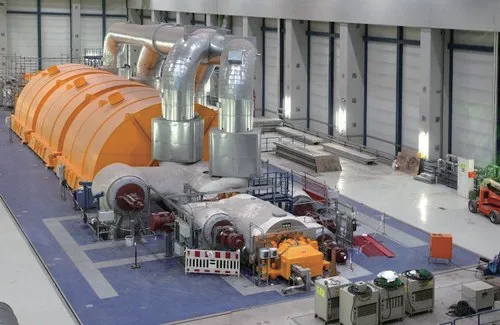
Energiebedryf: In die energieveld word turbineskewe gebruik in stoomturbinemotors, gasmotors, stoomturbinemotors en ander toerusting in verskeie tipes van voortbringsseenhede. Hulle omskakel gas of stoomenergie na elektriese energie vir gebruik in kragstasies deur die rotor van 'n generator te draai.
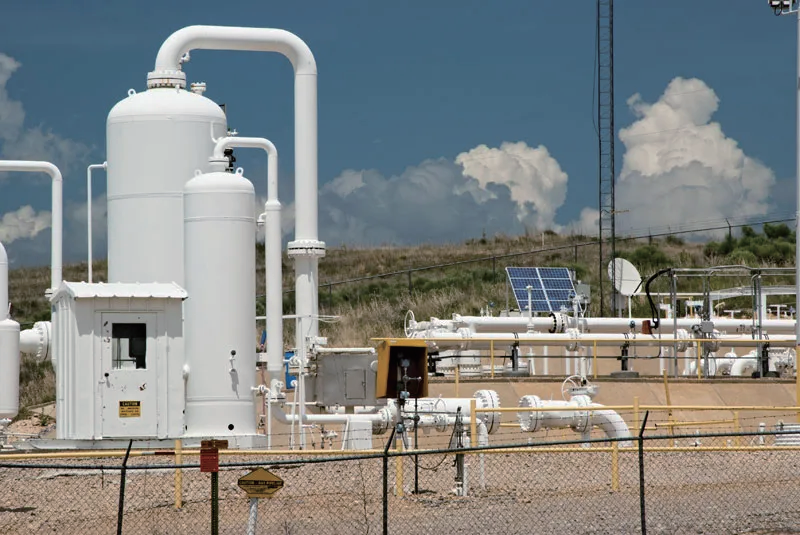
Industriële veld: In die bedryfsveld word turbineskewe gebruik in verskeie soorte turbomasjiene-toerusting, soos kompressore, fane, pompe, ens. Hulle verwezenlik die kompresie, vervoer of sirkulasie van vloeistowwe of gase deur rotasie en word gebruik vir kragoorgawe en energieomskakeling in industriële produksie-, vervaardiging- en proseseringprosesse.
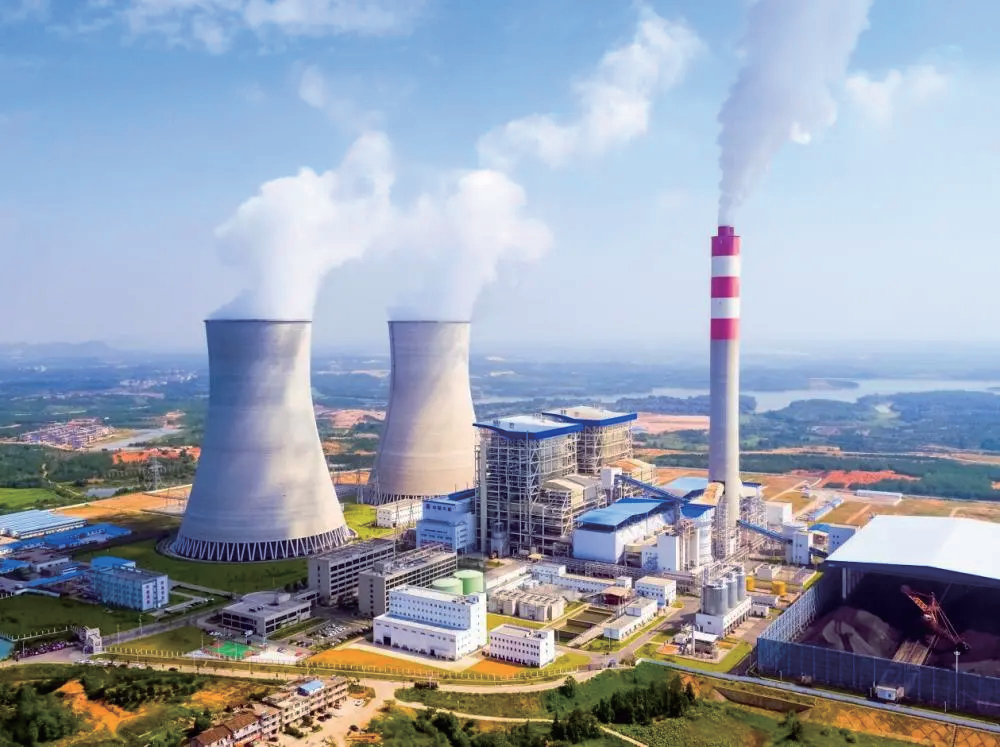
Industriële veld: In die energie-ekstraksieveld word turbineskewe gebruik in verskeie turbinemasjiene-toerusting, soos olie-en gas-ekstraksie-toerusting, waterkragvoortbringings-toerusting, ens. Hulle dryf verwante toerusting deur rotasie om energie-ekstraksie- effektiwiteit en produktiwiteit te verbeter.
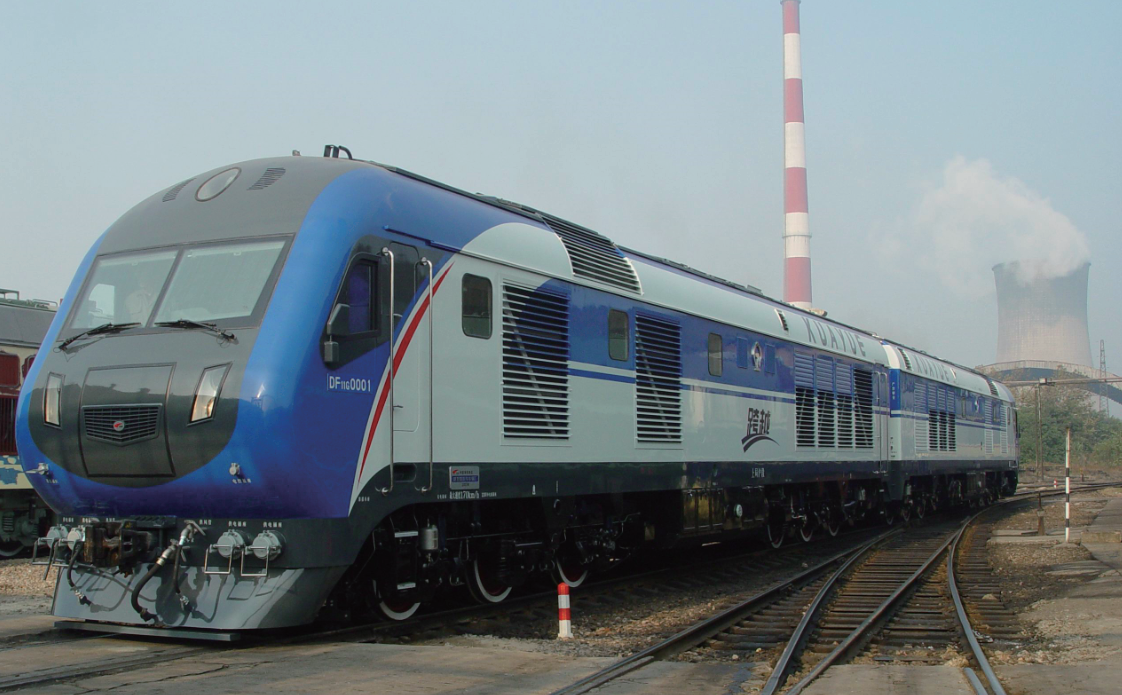
Vervoerveld: Turbinlblaaie word in turboversterkers in motorvoertuigemotors gebruik om motorkragt en brandstofdoeltreffendheid te verbeter, asook in turboversterkers vir vervoermiddels soos treine en skepe.
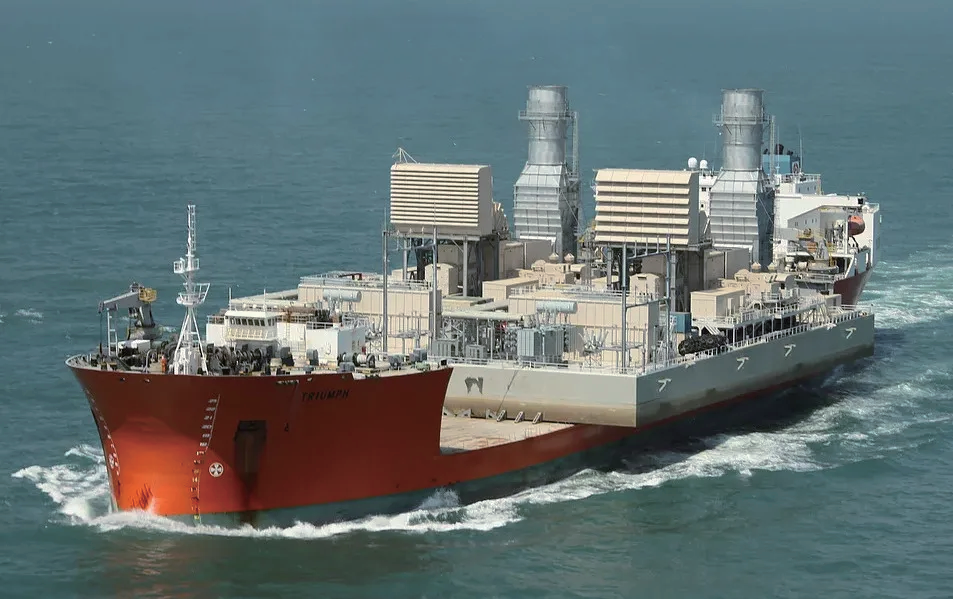
Skeepbou-industrie: Turbinlblaaie word in skepemagtoestelle, soos turboversterkers en see turbinnes, gebruik om mag te verskaf om skewe te dryf.
Ons professionele verkoopspan wag vir u konsultasie.